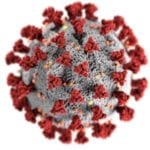
SecuGen has some fingerprint reader cleaning advice for those worried about both hygiene and security in the midst of the COVID-19 outbreak. The company has issued a three-step guide for the people using its scanners, and recommends that people clean devices between every use to reduce the risk of transmission. Doing so is particularly important for devices that are shared by multiple individuals.
Thankfully, the cleaning process itself is relatively straightforward. If the surface of the reader is dirty, users can spray it with a standard glass cleaner, or wipe it down with a tissue, a paper towel, or a damp cloth that has been treated with some kind of cleaner. After that, users should repeat the process with a disinfectant to sterilize the surface. Users should follow the instructions on their product of choice, and let the wet disinfectant remain on the surface for the recommended amount of time before wiping it off.
Once the surface has been dried, the process is complete and the fingerprint reader is once again safe to use.
The surface of a SecuGen reader is made of glass, so it is safe to clean with most common household disinfectants, including anti-microbial wipes and sprays and diluted bleach solutions. However, the plastic housing is a bit more delicate, and may deteriorate if cleaned with stronger solvents or acids. SecuGen also advises people to make sure that any cleaning cloths are damp – not dripping – and to get rid of any excess liquid before treating the surface. Pouring a liquid directly onto the surface of the reader is similarly ill-advised.
While the regular cleanings may be a bit inconvenient in the short term, it’s vastly preferable to the further spread of the coronavirus, and should help protect those who are most vulnerable to the disease. The NYPD has already suspended the use of fingerprint authentication at its headquarters in an effort to slow the virus.
SecuGen was planning to showcase a new fingerprint module at Connect:ID, though the event was ultimately cancelled due to health and safety concerns.
–
March 16, 2020 – by Eric Weiss








Follow Us